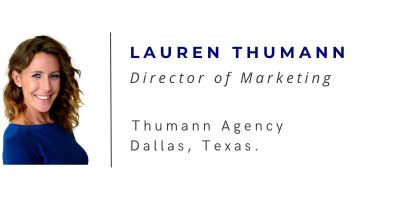
Running a business in Texas comes with its share of challenges, and for many owners, the rising cost of commercial auto insurance premiums is a big one. Whether you’re navigating Dallas’s crowded highways or hauling equipment across rural plains, your insurance costs can feel like a moving target. Premiums in Texas are shaped by unique factors like severe weather, urban traffic, and your business’s operations. As a Dallas-based independent broker, we’ve seen firsthand how these elements impact local businesses.
This guide dives deep into the factors affecting commercial auto insurance premiums, offering practical insights to help you manage costs without sacrificing coverage.
Understanding Commercial Auto Insurance Premiums
Commercial auto insurance safeguards your business vehicles, covering everything from collision damages to liability claims. Unlike personal auto policies, these plans are tailored for vehicles used in business activities think delivery vans, construction trucks, or company cars. Premiums are essentially the price you pay for this protection, calculated based on the risks your business presents to insurers. In Texas, those risks are amplified by factors like frequent hailstorms or congested roads in cities like Houston. For example, a 2023 Texas Department of Insurance report noted that commercial auto premiums rose 8% statewide due to increased claims from weather-related damages.
The good news? Understanding these risks empowers you to make smart choices. At Thumann Agency, we specialize in finding policies that fit your budget while covering your unique needs. This section sets the stage for exploring the key drivers behind your premiums, so you can take control of your insurance costs.
Key Factors Affecting Commercial Auto Insurance Premiums in Texas

Your commercial auto insurance cost factors depend on a mix of operational, environmental, and policy-specific elements. Below, we break down the six biggest drivers, with Texas-specific insights and actionable tips to help you save. Each factor plays a distinct role, and knowing them can make a real difference for your bottom line.
Driving Records and Driver Experience
Your drivers’ histories are a top factor in how driving records affect commercial auto insurance. Insurers dig into motor vehicle reports to check for accidents, speeding tickets, or serious violations like DUIs. A clean record signals low risk, keeping premiums down, while a single at-fault crash can hike rates by 20-40%, per Texas Department of Insurance data. In Texas, urban areas like Dallas amplify this risk Interstate 35E sees over 500 crashes monthly, making safe driving critical.
For example, a Dallas landscaping company we worked with saw premiums drop 15% after implementing driver safety training. Regular training, record checks, and hiring experienced drivers (over 25 with clean licenses) can curb costs.
-
Actionable Tip: Enroll drivers in Texas-approved defensive driving courses to improve records and qualify for discounts. Monitor records quarterly to catch issues early.
-
Texas Twist: Dallas’s traffic congestion means even minor violations can add up. Prioritize drivers familiar with local roads to reduce risk.
Vehicle Type and Usage
The vehicles you insure and how you use them are major commercial vehicle insurance premium influences. Heavy-duty trucks, like those used in Texas’s oilfields, cost more to insure than light vans due to higher repair costs and risk of severe accidents. Usage also matters delivery vans zipping through Houston’s downtown face greater exposure than utility trucks on rural job sites. A 2024 industry study found that high-usage vehicles (over 50,000 miles annually) can increase premiums by 25%.
In Texas, industries like construction or logistics often rely on specialized equipment, which insurers view as riskier. For instance, a flatbed truck hauling materials is pricier to cover than a standard pickup. Choosing vehicles with lower risk profiles or retrofitting them with safety features, like lane departure warnings, can shave costs.
-
Actionable Tip: Select vehicles with strong safety ratings or add features like backup cameras. Review usage patterns to ensure you’re not over-insuring low-mileage vehicles.
-
Texas Twist: Texas’s oil and gas sector uses heavy rigs that drive up premiums. Work with us to match vehicle types to your specific needs.
Location and Garaging
Where your vehicles operate and park significantly shapes factors impacting commercial auto insurance rates. Urban hubs like Dallas or Austin have higher accident and theft rates, pushing premiums up. For example, garaging in Dallas’s 75216 zip code, known for vehicle theft, can increase costs by 15% compared to suburban areas, per 2023 insurance data. Texas’s weather also plays a role North Texas’s hailstorms, which caused $3 billion in damages in 2024 (NOAA), lead to frequent claims, inflating rates.
A San Antonio contractor we helped saved 10% by relocating their fleet to a secure, rural garage. Choosing low-risk garaging locations and operating in safer regions can make a difference.
-
Actionable Tip: Park vehicles in secure, fenced lots or less urban areas. If operating in high-risk cities, invest in anti-theft devices to offset costs.
-
Texas Twist: Texas’s sprawling geography means rural operations often face lower rates than city-based ones. We can pinpoint optimal garaging spots for savings.
Business Type and Industry Risk
Your business type is a critical commercial auto insurance pricing factor. High-risk industries, like trucking or construction, face steeper premiums due to frequent vehicle use and exposure to hazards. For instance, Texas logistics firms along I-10, a busy freight corridor, often see 20% higher rates than retail businesses with minimal vehicle use. A 2024 risk assessment report showed construction firms file 30% more claims than office-based businesses, driving up costs.
We helped a Dallas roofing company cut premiums by 18% by tailoring coverage to their specific operations, avoiding one-size-fits-all policies. Understanding your industry’s risk profile helps you avoid overpaying.
-
Actionable Tip: Review your business classification with us to ensure accurate risk assessment. Bundle auto with other business insurance for potential discounts.
-
Texas Twist: Texas’s booming construction and energy sectors face unique risks. Our local expertise ensures coverage matches your industry’s needs.
Coverage Limits and Deductibles
Your policy’s coverage limits and deductibles directly influence what affects commercial auto insurance premiums. Higher limits, like $2 million in liability, provide robust protection but increase costs by 15-25%, per Texas insurance guidelines. Conversely, a higher deductible say, $2,000 instead of $500 lowers premiums but means more out-of-pocket expenses during claims. In Texas, balancing these is key, especially for businesses with tight budgets.
A Houston delivery service we advised saved 12% by raising their deductible while maintaining adequate liability coverage. Reviewing your financial capacity and risk tolerance is crucial for cost-effective decisions.
-
Actionable Tip: Work with us to adjust limits and deductibles based on your cash flow and risk exposure. Regularly reassess coverage to avoid under- or over-insuring.
-
Texas Twist: Texas’s high claim frequency from weather and traffic makes balanced coverage critical. We ensure your policy fits both your budget and risks.
Safety Features and Risk Management
Investing in safety can significantly reduce factors influencing commercial truck insurance premiums. Vehicles equipped with telematics, anti-theft systems, or collision avoidance tech lower risk, often cutting rates by 10-20%, according to a 2024 fleet safety study. Texas businesses adopting fleet safety programs, like those required for DOT-regulated trucking firms, see similar savings. For example, a Fort Worth logistics firm we assisted saved 22% by installing GPS trackers and training drivers on safe practices.
Proactive risk management, like regular vehicle maintenance or safety audits, also helps. These steps not only lower premiums but also reduce downtime from accidents. Request a quote online to explore your options.
-
Actionable Tip: Retrofit vehicles with safety tech and implement driver safety programs. Document maintenance to prove risk reduction to insurers.
-
Texas Twist: Texas’s long hauling routes demand robust safety measures. We can recommend programs tailored to local driving conditions.
Texas-Specific Risks and How They Impact Premiums
Texas’s unique landscape creates distinct challenges for commercial auto insurance rate determinants. Severe weather is a major driver 2024’s hailstorms in Dallas and tornadoes in the Panhandle caused $4 billion in insured losses (NOAA), spiking claim frequency and premiums. Urban traffic compounds the issue: Houston’s I-610 loop sees 600 crashes monthly, per Texas DMV, increasing accident risks. Vehicle theft, particularly in San Antonio, also raises costs, with 7,000 vehicles stolen in 2023.
Rural businesses aren’t immune either long-distance hauling on I-20 increases wear and tear, leading to higher maintenance claims. A Lubbock farm equipment dealer we worked with reduced premiums by 15% by addressing these risks with targeted coverage. Our Dallas-based team knows Texas’s nuances, from coastal hurricanes to border-town theft trends, and we use this insight to craft policies that protect your business affordably.
-
Actionable Tip: Install weather-resistant vehicle features, like hail guards, and use telematics to monitor urban driving. We’ll find coverage that tackles Texas’s specific risks.
-
Texas Twist: From Amarillo’s snowstorms to Brownsville’s floods, Texas’s diverse climate demands localized strategies. Our expertise ensures you’re covered.
For a detailed step-by-step breakdown on commercial auto insurance, read our Commercial Auto Insurance: A Detailed Guide for Businesses in Dallas, Texas.
Commercial Auto Insurance with a Difference – Trust Us to Deliver
Since 1996, Thumann Agency has been Dallas’s go-to independent insurance broker, serving Texas businesses with tailored commercial auto insurance solutions. With nearly three decades of experience, we’ve helped thousands of clients from small startups to large fleets navigate the complexities of insurance. Our expertise lies in understanding Texas’s unique risks, like hail-prone North Texas or Houston’s traffic gridlock, and matching you with the right coverage.
What sets us apart? We partner with over 80 top-rated insurers, giving you unmatched choice and flexibility. Our licensed agents use advanced risk assessment tools to analyze your operations, ensuring cost-effective policies without gaps. We’re proud of our local roots based in Dallas, we know Texas’s business landscape inside out. Clients love our no-jargon approach; take Maria, an Austin caterer, who said, “Thumann Agency saved us 25% on our van fleet coverage while making everything crystal clear.” Recognized as a trusted provider since our founding, we prioritize your needs, delivering peace of mind and savings. Whether you’re in construction or retail, we’re built to protect your business. Call 972.991.9100 for a free consultation.
FAQs on Commercial Auto Insurance Premiums
How are commercial auto insurance rates calculated?
Rates are based on risk factors like driver records, vehicle type, and location. In Texas, insurers assess claims history and industry risks to set premiums. We compare options from 80+ insurers to find affordable, tailored coverage for your business.
What vehicle types impact commercial auto insurance costs?
Heavy trucks or specialized vehicles, common in Texas’s oil industry, cost more to insure than vans due to repair costs and risk. Choosing vehicles with safety features can lower your commercial auto insurance cost factors.
How do driver records affect commercial auto insurance premiums?
Accidents or violations increase premiums by signaling risk. In Dallas’s heavy traffic, clean records are vital. Driver training and regular record checks can reduce your factors impacting commercial auto insurance rates.
What role does business type play in commercial auto insurance rates?
High-risk industries like trucking face higher premiums than retail. Texas logistics firms see elevated rates due to traffic exposure. We tailor coverage to your industry for cost-effective protection.
Why do claims history influence commercial auto insurance costs?
Frequent or costly claims suggest higher risk, raising premiums. A clean claims history in Texas can lower rates. We help you implement safety measures to minimize claims and costs.
How does cargo type affect commercial auto insurance premiums?
Hazardous or high-value cargo, like chemicals, increases premiums due to risk. In Texas, secure cargo handling reduces claims. We find policies that match your cargo needs affordably.
Conclusion
Managing commercial auto insurance premiums affecting factors in Texas requires understanding the unique drivers behind your costs. From driver records and vehicle types to Texas’s hailstorms and bustling cities, each element plays a role. By addressing these factors through safety investments, smart coverage choices, or secure garaging you can keep costs down while protecting your business. Texas’s diverse risks, like I-35E’s traffic or coastal floods, demand tailored solutions, and that’s where we shine. At Thumann Agency, our Dallas-based team leverages nearly 30 years of experience and partnerships with 80+ insurers to deliver coverage that fits your needs and budget. Take control of your insurance today call 972.991.9100 for a free consultation.
Last Updated: 14.07.2025
Author: Lauren Thumann Director of Marketing.

Disclaimer: This page is for educational purposes only. Coverage details vary by provider. Contact us for a personalized quote.
